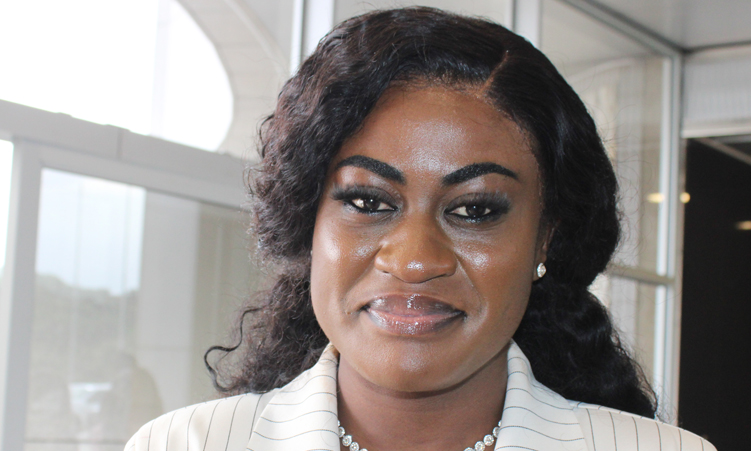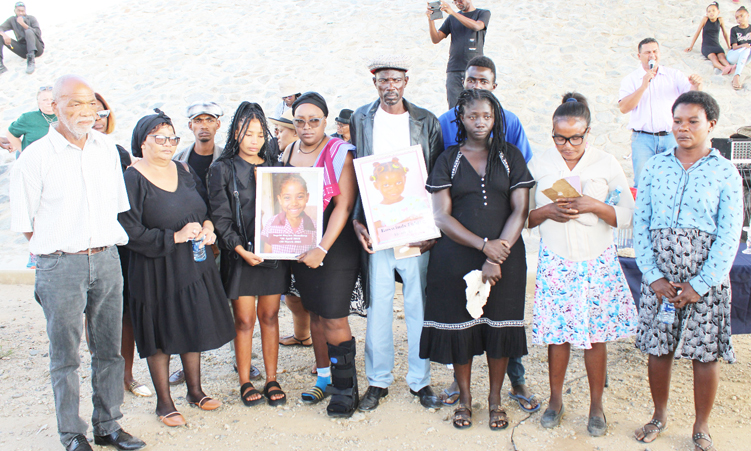ALLEGED murderer Vilho Nghidimbwasha, who last year testified in the High Court about seeing very curious visions of threatening, levitating people with donkeys’ ears before he killed a neighbour in mid-2003, was and remains sane and fit to stand trial, a State psychiatrist insisted when Nghidimbwasha’s trial continued this week.
Having observed Nghidimbwasha at the psychiatric unit at Windhoek Central Hospital from early in February to March 22 2007, State psychiatrist Dr Reuben Japhet concluded that Nghidimbwasha was experiencing no delusions, hallucinations or illusions and that he was not mentally ill. Dr Japhet told Judge Kato van Niekerk this when Nghidimbwasha’s trial continued in the High Court in Windhoek on Tuesday following a four-month break in the trial.Nghidimbwasha is charged with a count of murder.He is accused of murdering a neighbour, Hofni Johannes, at Uudhiya, a village in the Ondangwa district, on July 13 2003 by inflicting a cut wound to Johannes’s neck, causing him to bleed to death.Nghidimbwasha pleaded not guilty when his trial started in October last year.His defence lawyer, Lucia Hamutenya, told the court that his plea explanation was that he had found his wife and Johannes sleeping with each other several times and had admonished them over this behaviour, until both upped and left the place where they and Nghidimbwasha were staying together some time before the incident took place.By the day of the incident, Nghidimbwasha had been subjected to days of threats, harassment and provocation from Johannes and other people who had gathered near his house for a week, appearing to be practising occultism, Hamutenya said.The killing took place when Nghidimbwasha took what he thought was a knopkierie and hit Johannes on the side of the neck, because he thought Johannes had come to attack him in his house, the court was told further.Nghidimbwasha then realised that he had hit Johannes with a panga instead of a knopkierie.Nghidimbwasha’s testimony in his own defence included some of the most unusual claims to have been heard in the High Court in years.He told the Judge that a few days after his wife and Johannes had moved out, people gathered under a tree near his house, where they were hitting on the ground with sticks and kept on saying that he had to be killed and his head had to be crushed.He also saw the people jumping into the tree and turning around to expose their backsides to him, Nghidimbwasha said.These people’s ears “became long like donkeys’ ears”, and he saw the people growing taller and then levitating, rising off the ground to the top of the tree before they slowly descended back down to earth again, Nghidimbwasha testified.He said he had endured a week of these threats and behaviour when Johannes entered his house, having been sent to come and catch him.He claimed Johannes was armed with a knopkierie, and he thought he also had a knopkierie in his hand with which he proceeded to hit Johannes against the neck, only to realise thereafter that it had in fact been a panga.After Johannes had died from the wound he sustained, Nghidimbwasha unclothed Johannes, poured water over his body, and again put clean clothing on the body, Nghidimbwasha also told the court.He then remained sitting by the side of the body until the Police eventually arrived at the scene.In his testimony on Tuesday, Dr Japhet was adamant that Nghidimbwasha did not suffer from any mental illness either at the time of the incident or thereafter.”He is just malingering,” Dr Japhet said.He said the impression to be gained from the testimony given by Nghidimbwasha is that he had been “extremely psychotic” at the time of the incident, according to him.Having analysed Nghidimbwasha’s behaviour further, though, he concluded that Nghidimbwasha was not mentally ill and that he had cooked up a story in an attempt to get himself off the hook, Dr Japhet said.He said he reached this conclusion when he considered the fact that the panga that Nghidimbwasha had used was found hidden under a bed, with no blood on it, that Johannes’s clothes were found in another room while his body lay on a blanket outside, that Nghidimbwasha had washed the body and told him that he did this because in his culture it is meant to ensure that Johannes’s soul would not return to make him “a useless person” – all things done with a reason – and because Nghidimbwasha could remember in detail what had happened.After Dr Japhet’s testimony had been completed, State advocate Ed Marondedze argued that the prosecution had proven that Nghidimbwasha had committed murder when he killed Johannes.Hamutenya argued that Nghidimbwasha had been subjected to persistent and severe provocation by Johannes and other people.Nghidimbwasha should be found not guilty, due to his mental condition at the time and because he was not able to control his actions, she argued.Judge Van Niekerk is scheduled to give her verdict on April 1.Nghidimbwasha remains in Police custody in the meantime.Dr Japhet told Judge Kato van Niekerk this when Nghidimbwasha’s trial continued in the High Court in Windhoek on Tuesday following a four-month break in the trial.Nghidimbwasha is charged with a count of murder.He is accused of murdering a neighbour, Hofni Johannes, at Uudhiya, a village in the Ondangwa district, on July 13 2003 by inflicting a cut wound to Johannes’s neck, causing him to bleed to death.Nghidimbwasha pleaded not guilty when his trial started in October last year.His defence lawyer, Lucia Hamutenya, told the court that his plea explanation was that he had found his wife and Johannes sleeping with each other several times and had admonished them over this behaviour, until both upped and left the place where they and Nghidimbwasha were staying together some time before the incident took place.By the day of the incident, Nghidimbwasha had been subjected to days of threats, harassment and provocation from Johannes and other people who had gathered near his house for a week, appearing to be practising occultism, Hamutenya said.The killing took place when Nghidimbwasha took what he thought was a knopkierie and hit Johannes on the side of the neck, because he thought Johannes had come to attack him in his house, the court was told further.Nghidimbwasha then realised that he had hit Johannes with a panga instead of a knopkierie.Nghidimbwasha’s testimony in his own defence included some of the most unusual claims to have been heard in the High Court in years.He told the Judge that a few days after his wife and Johannes had moved out, people gathered under a tree near his house, where they were hitting on the ground with sticks and kept on saying that he had to be killed and his head had to be crushed.He also saw the people jumping into the tree and turning around to expose their backsides to him, Nghidimbwasha said.These people’s ears “became long like donkeys’ ears”, and he saw the people growing taller and then levitating, rising off the ground to the top of the tree before they slowly descended back down to earth again, Nghidimbwasha testified.He said he had endured a week of these threats and behaviour when Johannes entered his house, having been sent to come and catch him.He claimed Johannes was armed with a knopkierie, and he thought he also had a knopkierie in his hand with which he proceeded to hit Johannes against the neck, only to realise thereafter that it had in fact been a panga.After Johannes had died from the wound he sustained, Nghidimbwasha unclothed Johannes, poured water over his body, and again put clean clothing on the body, Nghidimbwasha also told the court.He then remained sitting by the side of the body until the Police eventually arrived at the scene.In his testimony on Tuesday, Dr Japhet was adamant that Nghidimbwasha did not suffer from any mental illness either at the time of the incident or thereafter.”He is just malingering,” Dr Japhet said.He said the impression to be gained from the testimony given by Nghidimbwasha is that he had been “extremely psychotic” at the time of the incident, according to him.Having analysed Nghidimbwasha’s behavi
our further, though, he concluded that Nghidimbwasha was not mentally ill and that he had cooked up a story in an attempt to get himself off the hook, Dr Japhet said.He said he reached this conclusion when he considered the fact that the panga that Nghidimbwasha had used was found hidden under a bed, with no blood on it, that Johannes’s clothes were found in another room while his body lay on a blanket outside, that Nghidimbwasha had washed the body and told him that he did this because in his culture it is meant to ensure that Johannes’s soul would not return to make him “a useless person” – all things done with a reason – and because Nghidimbwasha could remember in detail what had happened.After Dr Japhet’s testimony had been completed, State advocate Ed Marondedze argued that the prosecution had proven that Nghidimbwasha had committed murder when he killed Johannes.Hamutenya argued that Nghidimbwasha had been subjected to persistent and severe provocation by Johannes and other people.Nghidimbwasha should be found not guilty, due to his mental condition at the time and because he was not able to control his actions, she argued.Judge Van Niekerk is scheduled to give her verdict on April 1.Nghidimbwasha remains in Police custody in the meantime.
Stay informed with The Namibian – your source for credible journalism. Get in-depth reporting and opinions for
only N$85 a month. Invest in journalism, invest in democracy –
Subscribe Now!










